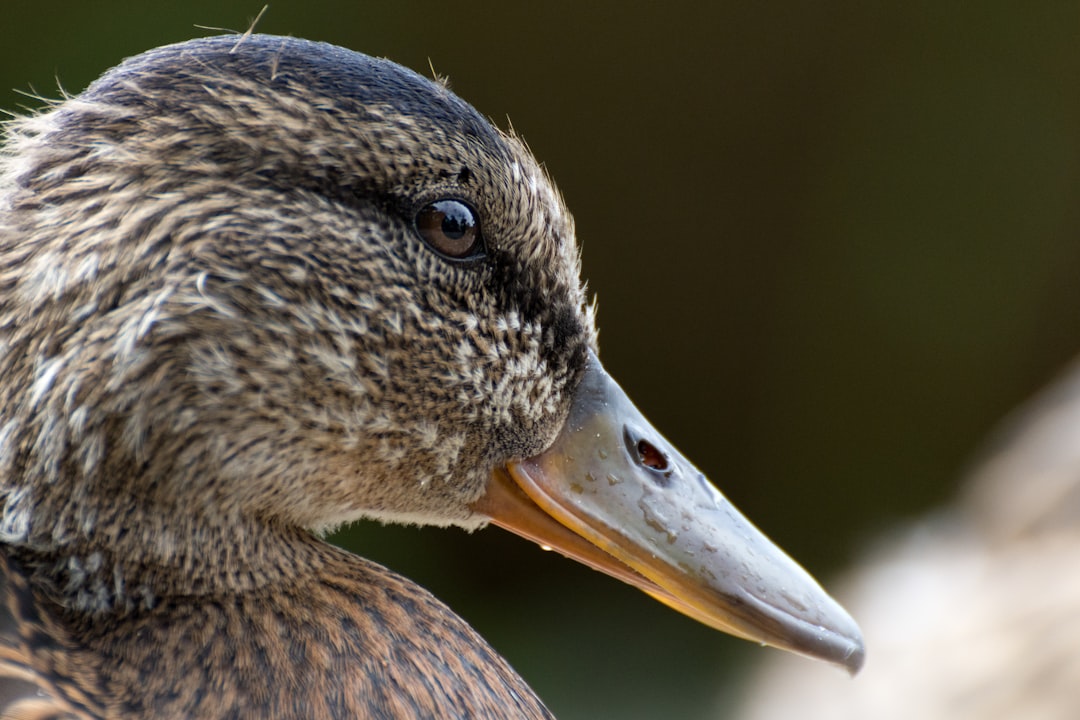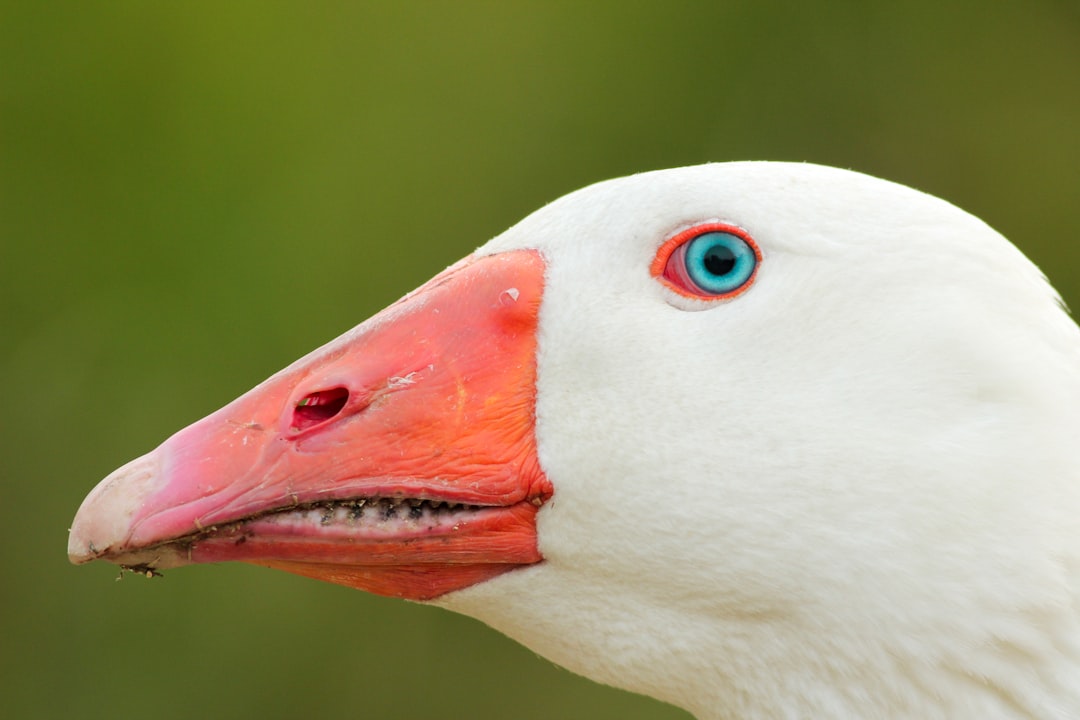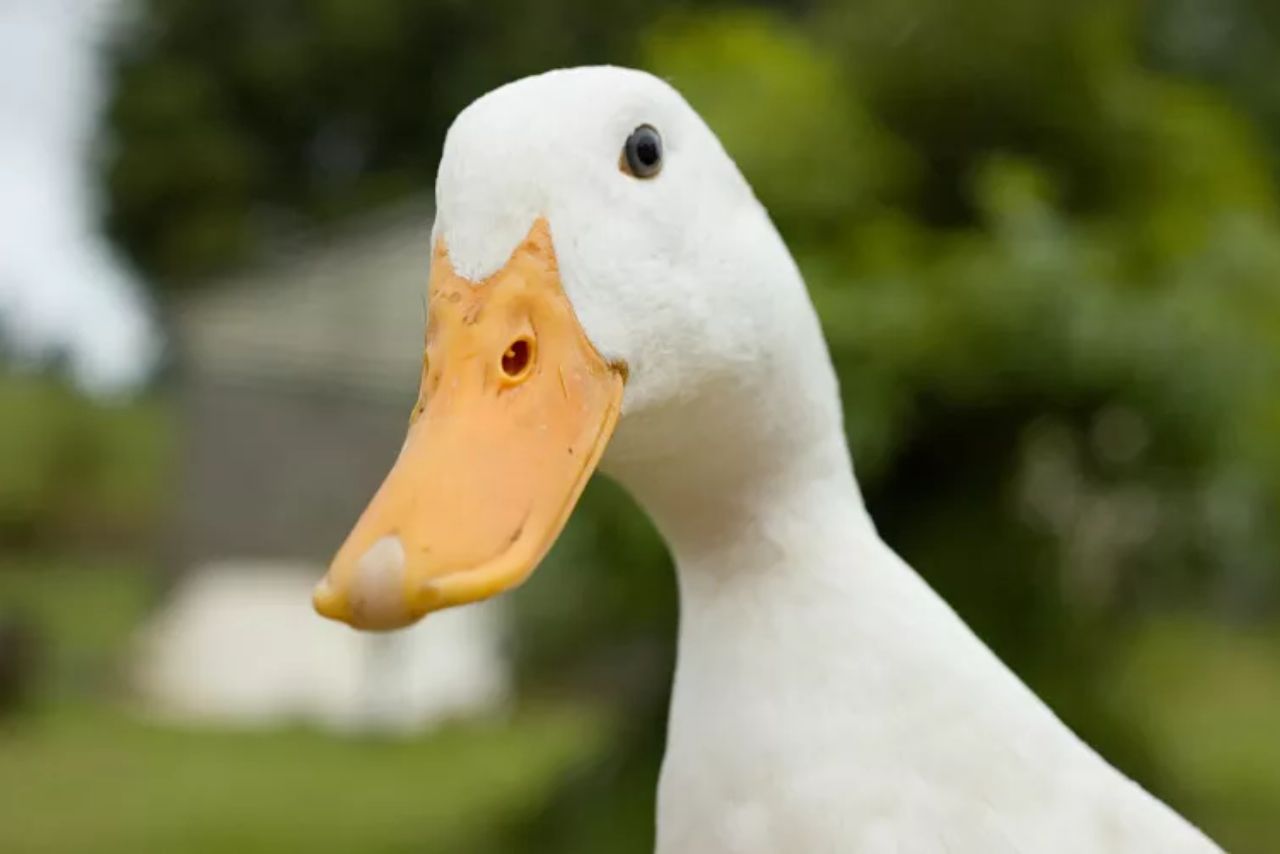Some sources claim that ducks have a sense of smell, while others argue that they do not.
In this blog post, we will explore the question “can ducks smell?” and examine the evidence for and against this ability.
Whether you are a curious observer of these ducks or simply interested in animal senses, this post will provide you with all the information you need to understand the debate surrounding ducks and their sense of smell.
Most of the species of ducks do indeed possess a functional sense of smell.
Their highly developed olfactory system allows them to detect and discriminate between various odors which may serve important functions such as identifying food sources and potential mates.
Nonetheless, additional investigations are required to completely elucidate the nature and scope of this sensory modality in waterfowl species.
Anatomy Of A Duck’s Olfactory System
Ducks’ sense of smell continues, researchers have discovered that ducks do have an olfactory system.
This system consists of olfactory receptors in their nasal cavity that can detect and process different odors.

However, the number of receptors is much lower than that of other animals ,specialized “receptors on their bills” and “olfactory receptors” in their nasal cavity ,with a strong sense of smell.
Additionally the “olfactory bulbs” in their brain are relatively small, indicating a less developed sense of smell compared to other species.’
The “olfactory bulbs” in their brain are relatively small, indicating a less developed sense of smell compared to other species.
Scientific Studies On Duck Smell
Despite the ongoing debate about ducks’ sense of smell, several scientific studies have been conducted to explore this topic.
One study published in the Journal of Experimental Biology found that ducks can detect odors, but their ability varies depending on the odor’s concentration and complexity.
Another study conducted by researchers at the University of Toulouse in France discovered that ducks can use their sense of smell to locate food.
The study involved placing food in a container with a small hole that allowed only odor molecules to escape. The ducks were able to find the food by following its scent through the hole.
It is clear that ducks do have some ability to detect odors, it is not as developed as their other senses.
Their keen eyesight and acute hearing are much more crucial for their survival and daily activities. So, can ducks smell? Yes, they can, but it is not a primary sense for them.
One study conducted on mallard ducks demonstrated that they possess a highly developed olfactory system with over 120 different odor receptors in their nasal cavity.
This large number of receptors suggests that the detection and discrimination of various odors is an important function for these birds.
Additionally, other studies have indicated that ducks use their sense of smell to navigate towards food sources and identify potential mates during breeding season.
Ducks Have Special Senses
Despite their relatively weak sense of smell, ducks have other unique senses that help them survive in their environment.
For example, they have an impressive ability to navigate using the Earth’s magnetic field, which allows them to migrate long distances with great accuracy.
Ducks also have specialized receptors on their bills that can detect changes in water pressure and temperature. This allows them to locate food underwater and avoid potential predators.
Function Of Nostrils Present On Beak Of Ducks

The nostrils present on a duck’s beak serve a different function than those of most animals. They are not used for breathing, as ducks primarily breathe through their mouths.
Instead, the nostrils are used to expel excess water while the duck is feeding underwater.
When ducks submerge their head to feed, water enters their beak along with food.
The nostrils act as a drain, allowing the water to exit without disrupting the duck’s ability to consume its meal.
Reasons For Ducks To Smell
There are several reasons why ducks may not have developed a strong sense of smell.
One theory is that since ducks spend much of their time in water, the scent molecules would quickly dissipate in the water, making it difficult for them to detect and locate the source.
Additionally, since ducks are omnivores and eat a wide range of foods, they may not require a keen sense of smell like carnivorous predators that need to track prey.
Comparing Duck Smell To Other Animals
When compared to other animals, ducks have a weaker sense of smell. For example, dogs have an incredibly developed sense of smell that they use for tracking scents over long distances.
Sharks also have a keen sense of smell that allows them to detect blood in the water from miles away.
However, it is crucial to note that every animal has unique adaptations and specialized senses that allow them to survive in their environment.
While ducks may not rely heavily on their sense of smell, they have other essential senses that enable them to navigate their surroundings and find food.
Ducks Rely On Their Senses To Navigate Through Life.
Whether they are swimming, flying or walking, ducks rely on their senses to navigate through life.
Their unique adaptations and specialized senses allow them to find food, avoid predators and migrate long distances with great accuracy.
While their sense of smell may not be as developed as other animals, it is just one piece of the puzzle that allows these fascinating creatures to survive in the wild.
In conclusion, ducks have evolved a variety of sensory systems that help them thrive in their environment.
They may not have a strong sense of smell, but they have exceptional vision and hearing, as well as specialized receptors on their bills that allow them to detect changes in water pressure and temperature.
Importance Of Smell, Sight, Touch, And Taste in Ducks
While ducks may not rely heavily on their sense of smell, they have other senses that are equally important for their survival.
For instance, their eyesight is exceptional and allows them to see things from a distance and in low light conditions.
This helps them detect predators and find food in different environments.
Ducks also have a highly developed sense of touch which they use to feel the texture and temperature of objects.
This sense is especially useful when they are searching for food underwater or when they need to navigate through dense vegetation.
Finally, ducks rely on their sense of taste to determine whether the food they are about to consume is safe or not.
Their bills contain specialized receptors that help them detect different tastes, which helps them avoid toxic substances.
Ducks Do Have A Sense Of Smell?
While ducks may not rely heavily on their sense of smell, recent studies have shown that they do possess some ability to detect odors.
Scientists have found olfactory receptors in the nasal cavity of ducks, indicating that they can smell to some extent.
In fact, a study conducted by the University of Illinois found that ducks can detect certain scents, including those related to food and predators.
Use Sense Of Smell In The Wild By Ducks
When it comes to using their sense of smell in the wild, ducks may not rely on it as heavily as other animals.
However, they do use it for certain purposes. For example, a female duck can use her sense of smell to identify her own offspring among a group of ducklings, even if they all look the same.
Ducks also use their sense of smell to locate food sources that are buried underground or hidden from sight.
They can detect the scent of vegetation and insects that are below the surface of the water or buried in mud.
Additionally, ducks may use their sense of smell to detect changes in water quality or temperature, which can affect their ability to find food and avoid potential hazards.
How Do Ducks Use Their Senses?
Ducks use their senses in a variety of ways to interact with their environment and survive.
They have exceptional vision, which helps them detect predators and find food from a distance, even in low light conditions.
Their highly developed sense of touch enables them to feel the texture and temperature of objects, making it easier to navigate through dense vegetation or search for food underwater.
Their sense of taste is also crucial for determining whether the food they are about to consume is safe or not.
Their bills contain specialized receptors that help them detect different tastes, allowing them to avoid toxic substances.
Can Ducks Smell Food?
Yes, ducks can smell food. While their sense of smell may not be as strong as other animals, they are still able to detect scents related to food.
In fact, researchers at the University of Illinois found that ducks can detect odors from certain foods, including corn, wheat, and soybeans.
Ducks use their sense of smell to locate food sources that are hidden from sight or buried underground.
Summary: Can Ducks Smell?
From their exceptional vision and hearing to specialized receptors on their bills and olfactory receptors in their nasal cavity, ducks have evolved unique adaptations that allow them to use all their senses.
While ducks may not have the strongest sense of smell among animals, recent studies have shown that they do possess this ability and use it for various purposes.
They can detect scents related to food, locate their home pond, and even identify their own offspring.
Each sensory system plays an essential role in helping ducks survive and thrive in their environment.
FAQs
Is a duck’s sense of smell important for their survival?
While ducks do not heavily rely on their sense of smell, it still plays a role in their survival. They use it to locate food and navigate back to their home pond.
Can ducks smell better than humans?
No, humans have a more developed sense of smell compared to ducks.
How does a duck’s sense of taste help them survive?
Ducks use their bills’ specialized receptors to detect different tastes, allowing them to avoid toxic substances and determine whether the food they are about to consume is safe or not.
Do all duck species have the same sense of smell?
There may be some variation among different duck species, but generally, they all possess some ability to detect odors.
How do researchers study a duck’s sense of smell?
Researchers can study a duck’s sense of smell by testing their ability to detect different scents in controlled environments or observing their behavior when exposed to certain odors in the wild.




